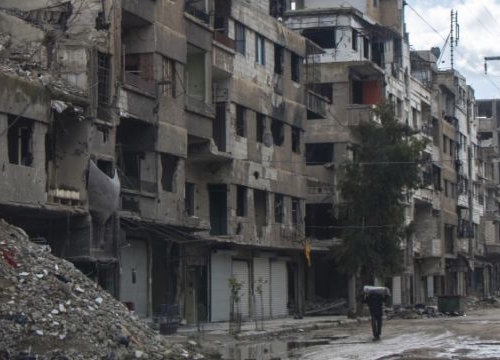2021 Current Issues in Armed Conflict Conference
Current Issues in Armed Conflict Conference


ICRC
The 2021 Conference on Current Issues in Armed Conflict will address two contemporary challenges and issues related to armed conflict: the classification of non-international armed conflicts in which a myriad of armed non-state actors – which might fight against a common enemy or create coalitions and umbrella organizations – are involved; and cyber conflicts.
Programme
The Conference is organized around the following two panels:
- Panel 1: Aggregating Violence: Quo Vadis?
- Panel 2: Cyber Conflicts
Discover the programme and panelists.
About CIAC
This annual conference – initially co-organized with the University of Essex – provides a space for experts and practitioners, diplomats, academics, and civil society representatives to discuss the legal and policy issues that have arisen in the past and the current year in relation to armed conflicts situations. It builds on our Rule of Law in Armed Conflicts (RULAC), a unique online portal that identifies and classifies all situations of armed violence that amount to an armed conflict under international humanitarian law.
Video
2021 Current Issues in Armed Conflict Conference
In the 2021 edition of the Current Issues in Armed Conflict Conference, panelists addressed two contemporary challenges and issues related to armed conflict: the classification of non-international armed conflicts in which a myriad of armed non-state actors are involved; and cyber conflicts.








